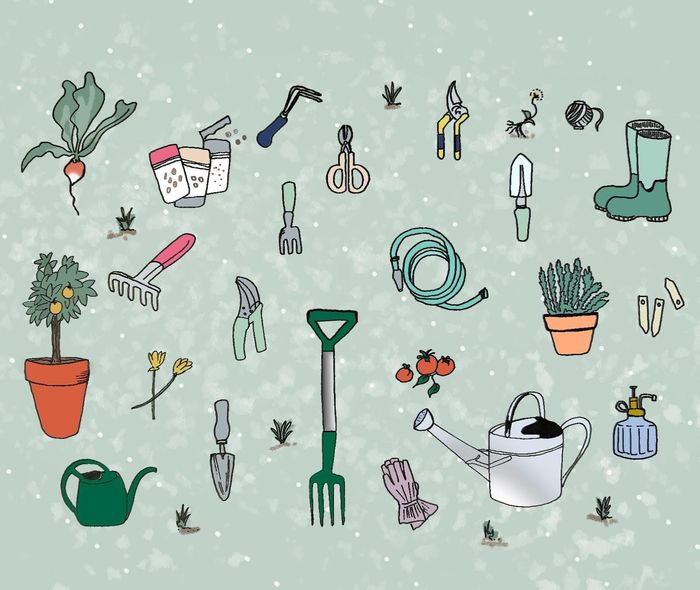On…Alignment
From Tchaikovsky to railway infrastructure, Mashal Aamir explores the meaning of ‘alignment’

I first heard of the world alignment in a ballet class when I was 8 years old. It was a big word then. It is a big word now.
In The Nutcracker, Tchaikovsky’s score for the “Dance of the Sugar Plum Fairy” was meant to emulate droplets falling from a fountain, a delicate elegance which is deceptively difficult to master. The piqué manege involves the ballerina aligning their spinal cord and making sure the ribcage pivots around it, risking subluxation, yet displaying seemingly effortless grace. How hard do we work for things to fall into place behind the scenes, a contrived alignment, not visible to an audience?
“Enter the train’s third carriage, when you disembark look down and you’ll see you’re on the sixth door which means your exit will be closest to you. To switch trains, just enter the fourth carriage so that the next train’s door will be directly opposite you. Just follow the numbers, there’s WIFI throughout!”
I was in South Korea and my friend was explaining the Seoul train journey I would take to work. The railway infrastructure was described by CNN as the best in the world. The convenience baffled me. In rush-hour London, I was lucky to even get on a train. If I knew that getting on at a particular carriage and exiting a particular numbered door would mean I was just steps away from the exit then I would gladly trade this over my battle to fumble on, cling for dear life and fight the heard to leave. Imagine how many minutes I would save in a day, how many hours in a year. All variables equating to time lost solely because Britain has not invested in aligning for the commuter’s convenience.
“How much of our life’s alignment is the product of antecedent forces, rather than our own agency?”
How much of our life’s alignment is the product of antecedent forces, rather than our own agency? It was once common practice in Costa Rica for a child to have three or even four names. Adults would consult the Calendar of Saints and choose the names which correspond with the child’s birth. You are born into a name, just as you are born into a certain place in the world.
The Kumbh Mela in India is an event which has been cited as pivotal in exacerbating the country’s horrific third wave. The event is held every 12 years thereby it was due to fall in 2022. However, leaders brought forward the event citing “astrological reasons”. Overlooking the mysteries of astrological arcana, what stands out is the uncontestably political agenda. It was brought forward before the upcoming elections and leads one to ask, did the proverbial stars actually align? Or was this an hauteur case of man imitating God, controlling astronomical forces once thought to be beyond the influence of mere mortals? If so, it wouldn’t be the first time.
A British-New Zealander once desired more time in the day to examine insects. He proposed aligning the sun, manipulating it to meet his desires. Others came forward with similar arguments, we would save candles, said Benjamin Franklin. Eventually, this view was endorsed by the German Empire. And just like that, nature is by the art of man. The sun was lined up to suit various interests and all around the world, despite the numerous disruptions it causes, a large segment of the population routinely aligns the sun in the name of daylight savings.
In New York’s Knoedler Gallery a painter posited accurate forgeries as genuine. The cost of this misalignment with the buyer’s expectation of provenance was an $81 million lawsuit. It presents alignment as an intangible link that satisfies the inner self. When things do not align with our expectations, we protest, we vote, we argue for reform, we even move the unmoveable. Yet we also want to suspend our disbelief, allowing room for us to present our own misalignment.
“When things do not align with our expectations, we protest, we vote, we argue for reform, we even move the unmoveable”
When striving for things to align, for efforts to equate to result, any surplus is deemed as fortunate and any shortage is unacceptable. My best friend went to graduate school in art expecting her trajectory to entail a prestigious job. When this continuum did not occur, we were desolate. But we forget all the instances where misalignment was deliberate. She drew her portfolio on the train journey to the interview, surely the effort did not align with the outcome. Similarly, one of the worst marks I received was for an exam I spent the longest time revising while the highest marks I attained at Cambridge was for an essay I rushed in a haphazard haste. I submitted that particular disaster with the unspoken expectation of receiving a good grade despite my minuscule efforts. Why do we demand alignment of expectation and yet present a deliberate misalignment? Do we always want a simple equation, a Seoul subway telling us which gate to disembark from for the most convenient exit?
In Korea, I would start my transit at “Sangsu Station” meaning “the beginning of the river.”
It made me feel like my journey was a natural riverine flow, yet under the surface, some of the world’s most advanced technology was working behind the scenes to link together where and when I would go next. Most of this was not something I could control but whatever aspect I could was one that I instinctively would.
In the quest for alignment, nothing is out of reach. Not even the sun.
 News / Hundreds of Cambridge academics demand vote on fate of vet course20 February 2026
News / Hundreds of Cambridge academics demand vote on fate of vet course20 February 2026 News / University Council rescinds University Centre membership20 February 2026
News / University Council rescinds University Centre membership20 February 2026 News / Judge Business School advisor resigns over Epstein and Andrew links18 February 2026
News / Judge Business School advisor resigns over Epstein and Andrew links18 February 2026 News / Petition demands University reverse decision on vegan menu20 February 2026
News / Petition demands University reverse decision on vegan menu20 February 2026 News / Caius students fail to pass Pride flag proposal20 February 2026
News / Caius students fail to pass Pride flag proposal20 February 2026










